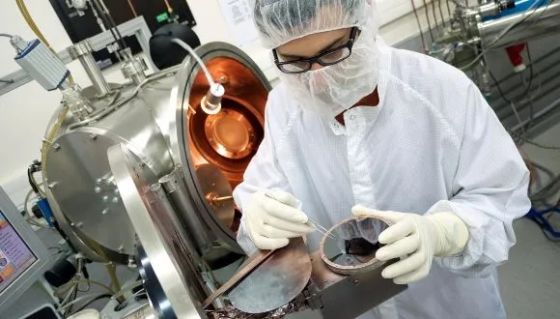
Investing in the Academic Entrepreneurs behind Israel’s Innovation
Doctoral fellowships enable Tel Aviv University STEM students to make groundbreaking discoveries
Firewalls, pillcams, Flexible Stents, Mobileye, and Iron Dome are just a few examples of Israeli innovation at its very best—discoveries made by Israeli researchers that have strengthened the nation’s economy and security while benefiting millions of people around the world.
At Tel Aviv University (TAU), innovation depends not only on the talented members of our faculty ranks but also on the thousands of PhD students working under their guidance and in their labs. TAU’s doctoral students bring to their studies everything positive that Israel stands for: brainpower, determination, creativity, social consciousness, and even a bit of chutzpah.
“In many ways, these driven young people are academic entrepreneurs, taking intellectual risks that lead the world toward new and enriching heights.”
If Israel is to continue its role as one of the key engines driving global technological and scientific innovation, it must support its gifted young researchers on their path to excellence and discovery,” explains TAU President, Prof. Ariel Porat.
“These students are the backbone of our progress. Providing them with fellowships is the best way of supporting them—it guarantees us the next generation of exceptional scientists, fueling discoveries that will shape the technological landscape,” he adds.
Fellowships carry great significance for recipients. For doctoral students, fellowships can be the key factor in deciding to stay in academia, especially when salaried jobs look much more enticing compared to the constant financial struggle of advanced study.
“Whereas undergraduates are generally younger and unmarried, graduate students often have families to support. Additionally, research at the doctoral level is rigorous and demands a high degree of concentration and absorption, making working outside of studies unfeasible and counterproductive to the goal at hand,” explains Professor Tova Milo, Dean of TAU’s Exact Sciences Faculty. “Especially in STEM subjects, which usually require experimental laboratory work, the commitment asked of students is huge.”
Optimizing Cancer Diagnostics
Amy Altshuler, a TAU doctoral student in Chemistry, says the fellowship she receives is a major factor in enabling her to move forward in her research. “The support allows me to dedicate my time and energy to my studies and research, without the need to take on a job. It also enables me to participate in academic conferences and collaborate with fellow researchers – which is crucial for my success and professional growth.”
Altshuler researches DNA microarrays, which are tools for quickly analyzing genetic changes. “These microarrays can help us understand and detect DNA changes linked to diseases like cancer. I aim to use these tools to optimize cancer diagnosis methods so that they are much faster,” she says.
Altshuler, who grew up in Rishon LeZyon, was passionate about the world of science since she studied chemistry in high school. “My love for solving challenging puzzles led me to pursue scientific research. My grandfather was ill with cancer and passed away, and his death made me realize this is the field where I want to make a real difference,” she says.
Ensuring Ethical AI
Adi Haviv, a PhD student in Computer Science, similarly affirms that her research demands her full attention.
“It would have been impossible for me to return to academia without the support I received from the University,” she says.

Adi Haviv, a TAU PhD student in Computer Scinece.
Haviv researches the decision-making processes in advanced AI models intending to ensure that AI is used ethically, for the benefit of society. She is exploring this area from an interdisciplinary perspective, collaborating with scholars in the legal field. “I was driven by my desire for a deeper understanding of the AI field, as well as a commitment to advancing responsible AI,” she says.
Haviv decided to return to TAU and pursue this research after several years in industry, where she worked as a team leader at eBay in New York. “From young age, I was fascinated by computers, and at the age of 14 I wrote my first lines of code. From there I was lucky to develop my passion into the research that I’m conducting today,” she says.
Harnessing the Power of Gene TherapyAnother scientific “entrepreneur” striving to bring about a breakthrough in his field is Omer Azar, a doctoral student in a competitive Kadar MD-PhD Fellowship Program.

Omer Azar, a TAU MD-PhD student in the Kadar Program.
“My highest ambition is to become a physician and a researcher, with the tools and know-how to positively impact the lives of others. My fellowship plays a pivotal role in allowing me to focus on my research as much as I do,” Azar, who is the 29-year old and originally from Ramat Hasharon explains.
Azar’s lab work revolves around the genetic editing of CAR-T cells, which redirects the natural T-cell’s killing capacity against cancer cells and is already saving the lives of patients with certain lymphomas. Azar is developing ways to implement the success of CAR-T cell therapy in treating hematological cancers to other cancer types. His research could “unlock” CAR-T therapy’s potential for many other malignancies, enabling a new, highly effective treatment.
“The experiences I’ve had in the Air Force during my military service helped me conclude that what I want to do with my life is to pursue research, but to also physically help people and interact with others – a combination which could be found exemplified in the medical field,“ he concludes.
Securing Israel’s lead
“Graduate fellowships in STEM are not only investments in individual academic excellence, but also in Israel’s future resilience and prosperity, believes Prof. Karen Avraham, Dean of TAU’s Faculty of Medical and Health Sciences.
“By fostering scientific innovation, we strengthen the country’s economic foundation, enhance its social fabric, and safeguard its security,” she says.
“In these challenging times, ensuring Israel’s leadership in science and technology is more crucial than ever. We must invest in our extraordinary human resources. We must support STEM doctoral fellows on their difficult, essential and rewarding path,” Avraham concludes.
